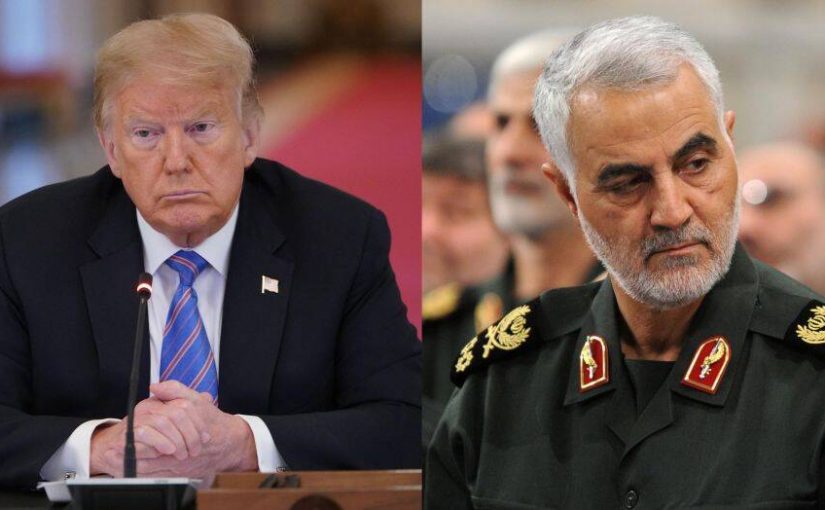On June 29, the Iranian state news outlet Press TV reported that Iran’s leadership issued a warrant for the arrest of several U.S. officials, most notably President Donald Trump, “on charges of planning and implementing a terrorist attack in the Iraqi capital that assassinated Iran’s top general Qassem Soleimani and his companions.”
Tehran Prosecutor Ali Alqasi-Mehr claimed that 36 U.S. officials in total had been identified as being involved in the killing.
The Press TV report claimed that Iran had requested that the international police organization INTERPOL issue “red notices” for all the individuals on the list.
INTERPOL’s Red Notice is a request to law enforcement worldwide to locate and arrest a person wanted by one or several member countries, pending legal action. Contrary to popular belief, a Red Notice is not an arrest warrant.
Later on the same day as the Iranian announcement, INTERPOL issued a statement saying that it would refuse to consider such red notice requests. It noted that article 3 of the organization’s governing constitution strictly forbids “intervention or activities of a political, military, religious or racial character.”
Polygraph.info attempted to reach INTERPOL for additional clarification, but received no response. The White House also declined to comment on the matter. A search of INTERPOL’s Red Notice database reveals no such notice for Donald Trump.
INTERPOL’s own claim that it rejects any red notices that are politically motivated is itself somewhat misleading, as the organization has a long been criticized for issuing red notices on behalf of authoritarian governments for the purpose of persecuting or silencing dissidents. Russia has issued a number of red notices seen as politically motivated. They included red notices for Ukrainian citizens and for Bill Browder, a British citizen and prominent Putin critic. A U.S.-born businessman, Browder co-founded Hermitage Capital in Russia and was forced out of the country in 2005. After his firm’s lawyer Sergey Magnitsky died in Russian prison, Browder became a leading force for the Global Magnitsky Act, a law that allows imposing sanctions against persons involved in human rights violations and corruption.
Browder’s involvement with the West’s sanctions policies made him a target of the Russian government. On seven occasions, Russia has asked Interpol to issue red notices for Browder, most of which were rejected on the grounds that they were political. However, in 2018, Browder was briefly detained in Spain and later denied entry to the U.S. on the basis of a Russian INTERPOL warrant.
President Trump has what is known as head-of-state immunity, similar to diplomatic immunity, meaning he cannot be arrested or detained upon arrival on foreign territory.













